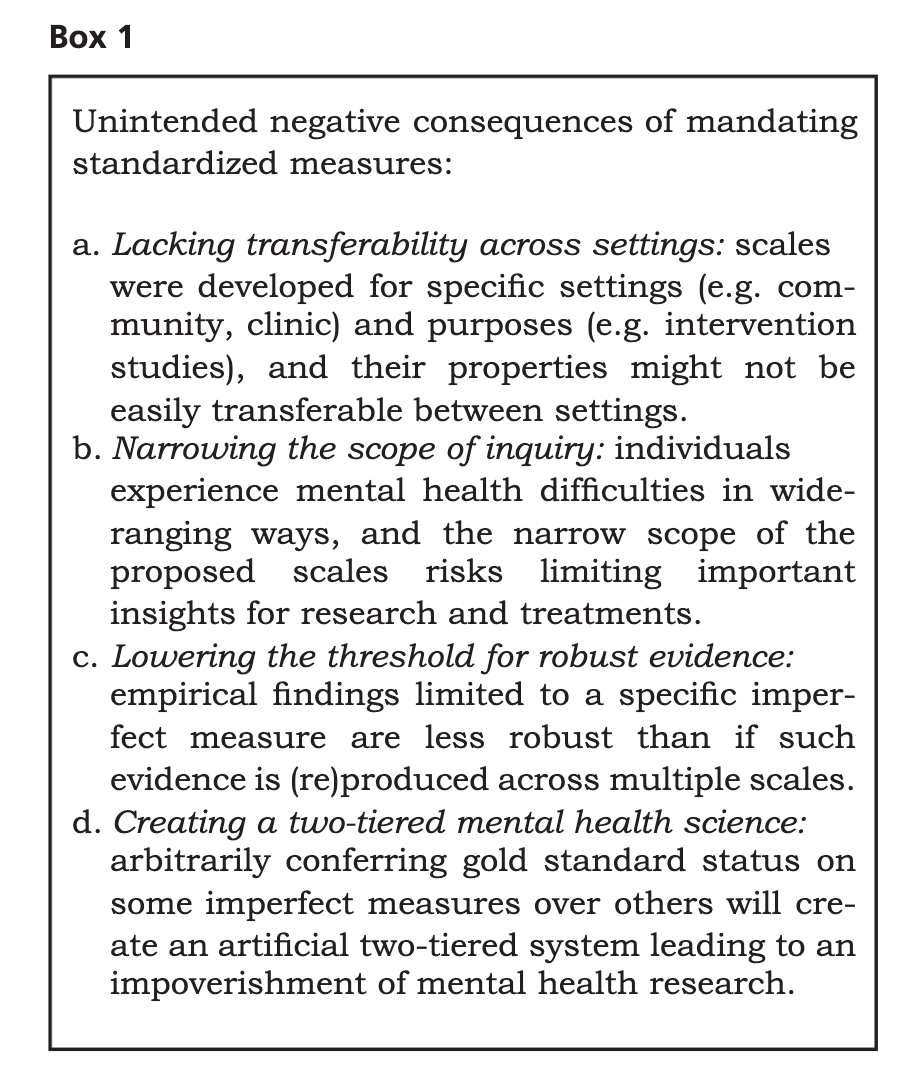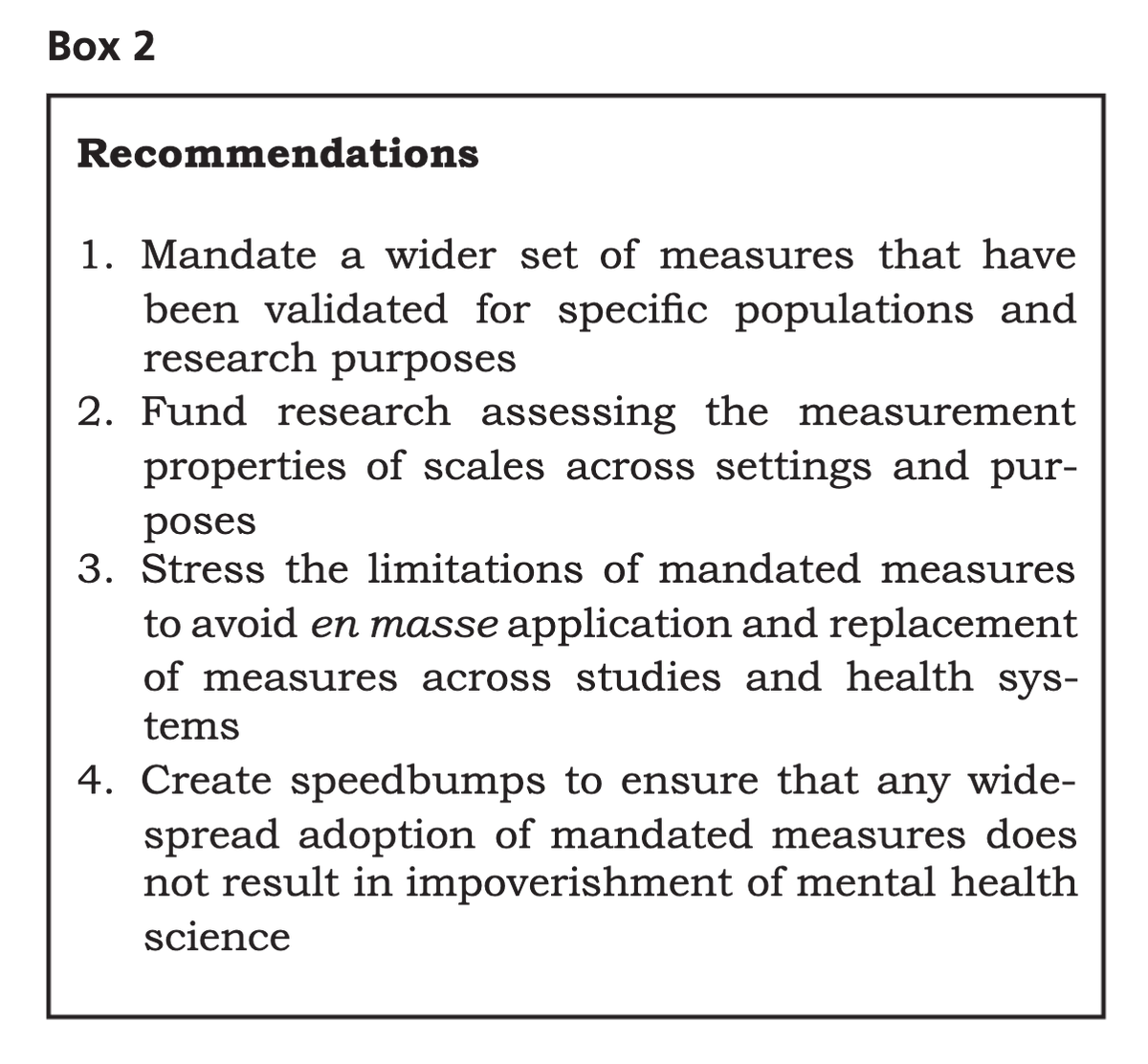In this new editorial, @pravpatalay and I summarize the challenges we see with the recent decision by @wellcometrust & @NIH to mandate standardized mental health measurement.
A brief https://abs.twimg.com/emoji/v2/... draggable="false" alt="🧵" title="Thread" aria-label="Emoji: Thread">. https://acamh.onlinelibrary.wiley.com/doi/10.1111/jcpp.13333">https://acamh.onlinelibrary.wiley.com/doi/10.11...
https://abs.twimg.com/emoji/v2/... draggable="false" alt="🧵" title="Thread" aria-label="Emoji: Thread">. https://acamh.onlinelibrary.wiley.com/doi/10.1111/jcpp.13333">https://acamh.onlinelibrary.wiley.com/doi/10.11...
A brief
In July 2020, @mirandarwolpert announced that @wellcometrust & @NIH, along with other organizations, would mandate the use of 4 specific scales: PHQ-9, GAD-7, RCADS-22, and WHODAS. https://www.linkedin.com/pulse/funders-agree-first-common-metrics-mental-health-science-wolpert">https://www.linkedin.com/pulse/fun...
In our editorial, we discuss 4 problems of prescribing measures in some detail—here an overview of the arguments:
Point A: we show that 0 of 30 population-based studies in UK used RCADS/WHODAS, only 2 PHQ/GAD. Only 1 of 81 intervention studies in young people used PHQ/GAD.
These scales were developed for specific purposes and it makes little sense to use them outside of these.
These scales were developed for specific purposes and it makes little sense to use them outside of these.
Point B: reducing scope to a few specific symptoms turns blind eye to complexity, heterogeneity & breadth of mental health problems, limits important insights for research & treatment, and reaffirms contested diagnostic categories the field is ready to move beyond (e.g. PHQ=DSM).
Point C & D are self-explanatory, see the table above.
We end the editorial with a few suggestions on how to move forward.
We end the editorial with a few suggestions on how to move forward.
Note that @mirandarwolpert wrote a rejoinder to our piece, which you can find here. We& #39;ve also been chatting about this in person, & hope to continue these conversations in the future.
/ https://abs.twimg.com/emoji/v2/... draggable="false" alt="🧵" title="Thread" aria-label="Emoji: Thread"> https://twitter.com/mirandarwolpert/status/1290658081014272003">https://twitter.com/mirandarw...
https://abs.twimg.com/emoji/v2/... draggable="false" alt="🧵" title="Thread" aria-label="Emoji: Thread"> https://twitter.com/mirandarwolpert/status/1290658081014272003">https://twitter.com/mirandarw...
/

 Read on Twitter
Read on Twitter



